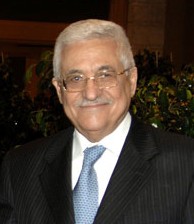Palestine Seeks Membership with the U.N. Security Council

After years of stalled peace talks with Israel, Palestine takes matters to the United Nations.
By Jennie Wood
On Friday, September 23, 2011, Palestinian president Mahmud Abbas officially requested a bid for statehood at the United Nations Security Council. The request came after months of failed European and U.S. efforts to bring Israel and Palestine back to the negotiating table. Abbas followed up the request with a speech to the General Assembly in which he said, "I do not believe anyone with a shred of conscience can reject our application for full admission in the United Nations." Why the Security Council?The Palestinian Authority is pursuing a Security Council vote to gain statehood as a full member of the UN rather than going to the General Assembly. One of the reasons for this is that the General Assembly can only give the Palestinian Authority non-member observer status at the UN, a lesser degree of statehood. In addition, the European states in the General Assembly have made it clear that they will support the proposal if the Palestinians drop their demand that Israel halt settlement construction. The Palestinians have long insisted that Israel cease the settlement construction and deemed the condition unacceptable. Therefore, the Palestinian Authority prefers to take its case to the Security Council even though the U.S. has vowed to veto the request. What's at Risk for United StatesThe Palestine Authority's proposal to the Security Council puts the U.S. and President Obama in a difficult position. For years the U.S. has made peace negotiations between Israel and the Palestinians a high priority, dedicating significant time and resources into resolving the conflict. The proposal to the Security Council threatens to derail any hope of getting back to those negotiations. Israel remains one of the United States' closest allies in a region that is more unstable than ever. Therefore the U.S. must maintain strong ties with Israel and proceed with Israel's interests in mind. Also, the U.S. considers Hamas, an official participant in the Palestinian's government, a terrorist group and cannot fully support the Palestinians until Hamas renounces violence or withdraws from the government. President Obama has other factors to consider. He faces re-election in 2012 and has to court his voting base. A large part of that base is pro-Israel. Congress, which wants to protect the relationship between the U.S. and Israel, is another concern for Obama. He needs to make sure Congress does not block aid to the Palestinian Authority. Members of Congress have expressed their opinions on the issue. This past summer, Reps. Kay Granger, a Republican from Texas, and Nita Lowery, a Democrat from Texas, wrote to Abbas. In their letter, they wrote, "Current and future aid will be jeopardized if you abandon direct negotiations and continue your efforts." In a letter to European leaders imploring them to vote against Palestinian statehood, 58 House Democrats wrote, "The United States will reconsider its assistance program for the Palestinian Authority and other aspects of U.S.-Palestinian relations if they choose to pursue such a unilateral effort." Meanwhile, former President Bill Clinton believes cutting off Palestinian aid would be a mistake. On September 18, Clinton appeared on ABC's This Week and said, "I think that everybody knows the U.S. Congress is the most pro-Israel parliamentary body in the world. They don't have to demonstrate that." After recent battles over the deficit, budget, and debt ceiling, Obama cannot risk more gridlock with Congress. On the other hand, in taking a strong stance against the Palestinians' bid, Obama risks alienating Arab nations, especially at a time when much of the Middle East is undergoing democratic uprisings. Obama could lose ground he gained recently with Arab relations. On June 4, 2009, President Obama gave a speech in Cairo. Addressing the Muslim and Arab world, he called on Palestinians to renounce violence, on Arabs to recognize Israel's right to exist, and for an end to settlement construction. On May 19 2011, attempting to capitalize on the season of change in the Arab world, Obama declared that the borders demarcated before the 1967 Arab-Israeli war should be the basis of a Mideast peace deal between Israel and Palestine. Threatening a veto of the Palestinians' request for statehood not only put the U.S. at odds with Arab nations, but also with other nations throughout the world. On September 21, 2011, President Nicolas Sarkozy of France gave a speech at the UN in which he said it was time to change the way Arab-Israeli peace negotiations had been approached in the past, saying the efforts had been a failure. Sarkozy, speaking right after Obama, disagreed with the U.S. position on the issue, "Who could doubt that a veto at the Security Council risks engendering a cycle of violence in the Middle East?" Where Palestine Goes From HereAbbas's application to the UN Security Council is historic. It is a response to years of frustration with the stalled peace talks. The Security Council will most likely begin to examine the proposal next week while the U.S. and its allies work to stall it. Only time will tell if the bid helps make real progress in negotiations with Israel or becomes counterproductive. Patience meanwhile has grown very thin in Palestine as other countries in the region continue to overthrow old governments and attempt to forge ahead with new ones. While diplomats debate at the UN in September 2011, thousands of Palestinians rallied for statehood in Ramallah, home of the Palestinian government. Back to More Features on the Israeli-Palestinian Conflict page. |
Sources: Associated Press, New York Times, mideastweb.org, and BBC.

